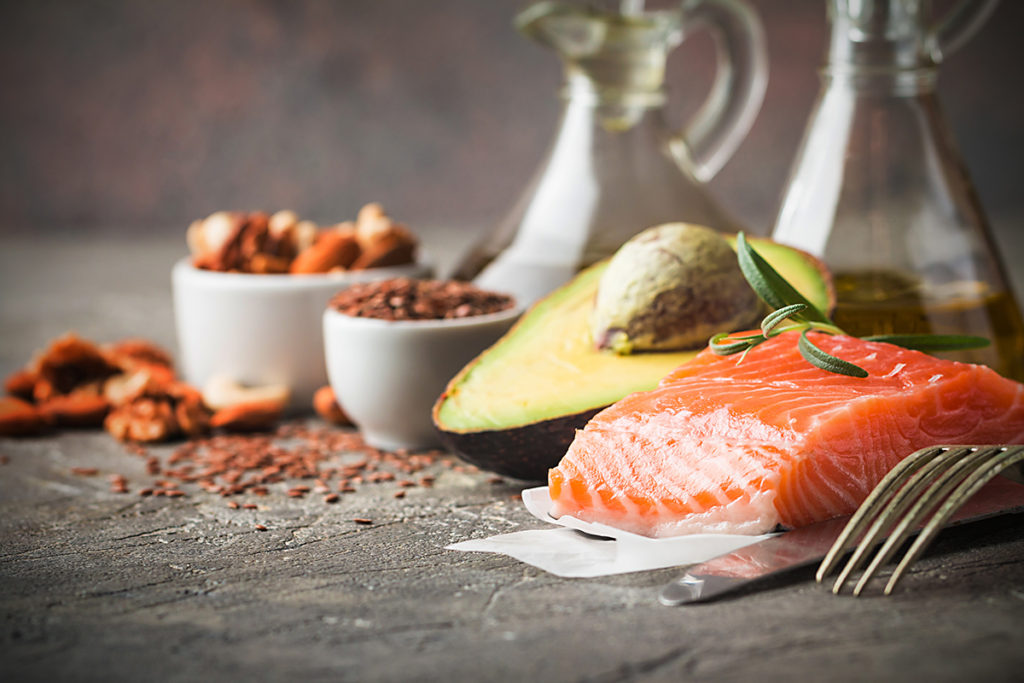![]()
Okay, this week we will be focused on nutrition basics. As a soon to be registered dietician and group fitness instructor I get asked so many of the same questions time and time again. The most asked question has to deal with nutrition. Clients frequently ask me one of three questions:
How much and of what type of food should I eat before a workout?
What should I eat after a workout and should it be protein or carbohydrate driven?
What are some good snacks to eat throughout the day?
These questions represent the basics of nutrition. If you are a healthy individual, and are not pregnant, diabetic or have any other acute or chronic disease, the following tenets can be easily applied to you baring that you get the okay from your primary care physician first.
Okay let’s dive in shall we?
You can calculate the macronutrients (protein, complex carbohydrates and healthy fats) by using simple calculations based on your current weight. I’m sure you’ve heard of the “macro” diet from several blogs and Instagram posts. Well, this is what it refers to in a broader sense. Protein, carbohydrates and fat represent the three major macronutrients. The reason “macro” diets are popular is because they take into account the type of calories being eaten versus just eating a set amount a calories that doesn’t take into what your eating. To understand what you should eat, you should begin by first understanding how what each of those macro nutrients do for you.

Protein: (4 calories per gram)
40% of the body’s protein is found in skeletal muscle and over 25% is found in body organs. Proteins contain constituent amino acids which are essential nutritionally because they are used to synthesize a variety of proteins that make life possible. Some of the amino acids we need can be synthesized by the diet; however, there are nine amino acids that are only found in food sources, typically meat.
Carbohydrates: (4 calories per gram)
Okay, I know you have a love/ hate relationship with carbohydrates— trust me I do too! But its important to know why carbohydrates are essential to life! Carbohydrates can be divided into simple and complex. Okay, allow me to get a bit technical.
Simple carbohydrates include monosaccharides and disaccharides (glucose aka sugar). High fructose corn syrup is an example of a monosaccharide and lactose is an example of a disaccharides. Now, if you asking yourself, ‘Well, Stephanie, why is this important to know?’ I feel you and I’m getting there. Simple carbohydrates are easily broken down absorbed into the body, elevating blood glucose levels. Complex carbohydrates include oligosaccharides and polysaccharides which are found in beans, peas, bran and whole grains. These carbohydrates are a larger molecule and will take longer to break down and essential absorb. This is why many dietitians will tell you if you are reaching for carbohydrates choose complex carbs because it takes longer to break down those carbs into usable parts.
Fat: (9 calories per gram)
Oh Fat! We have such a negative connotation attached to the word fat. Let me try to impart some wisdom on you so that you change your attitude about fat. Yes, fat is the most calorie dense nutrient out here (hello 9 calories per gram), but it does serve in important process within several bodily functions. Lipids (the scientific term) refers to cholesterol, saturated and unsaturated fatty acids, trans fatty acids and various other lipoproteins.
Of all of the fats, the two that you should be most concerned with are trans fatty acids, omega-3 fatty acids, and omega-6 fatty acids. The latter two fatty acids are essential to our body; however, we cannot synthesize them ourselves so they most be sourced through our diet. Omega- 6 fatty acids can be obtained from most vegetable oils. Sources of omega- 3 fatty acids include fish such as salmon, vegetable oils, nuts (especially walnuts), flax seeds and flaxseed oil. Omega-3 fats have been shown to help prevent heart disease and stroke. Conversely trans fatty acids have been shown to increase the risk of coronary heart disease.
Whew… still there?!
Okay now lets quickly touch base on what you need for daily nutrition. First before we begin convert your weight to kilograms (kg) by dividing your weight in pounds by 2.2. So if you weigh 125 lbs, dived that by 2.2 and you get 56.82. That is your weight in kg.
Protein:
Overall you should be eating daily at least 0.8g protein per kg of body weight. So if you’re 125 (or 56.81kg) you should be consuming at least 45g of protein daily. Split a majority of that up in lunch and dinner and divide the rest into breakfast and snacks.
Carbohydrates:
Additionally 45-65% of your total daily calories should come from carbohydrates. Go lighter on the carbohydrates in the evening as unused energy will be converted into stored energy, aka fat. So if you are consuming a 2,000 calorie diet, 45% of that (or 900 calories) should come from carbohydrates. Remember there are 4 calories per one gram so in total you would need 225 grams (900 divided by 4) daily.
Fat:
20- 30% of your total daily calories should come from healthy fats. Remember fat has more calories per gram than protein and carbohydrates. 20% of a 2,000 calorie diet is 400 calories. Divide that by 9 and you get 44 grams of fat per day. Again aim for monounsaturated fats and polyunsaturated fats such as omega- 3 and omega- 6 fatty acids.
If you’re following a “macro diet” you can divide your calories up with a majority of calories going towards your macros (protein and carbohydrates) and the rest going toward fat. A common split is 40:40:20. 40% of total daily calories toward protein, same for carbohydrates and remaining 20% of total daily calories going toward fat.
Hope this helps! Remember consult your primary care physician with any changes in your diet.



